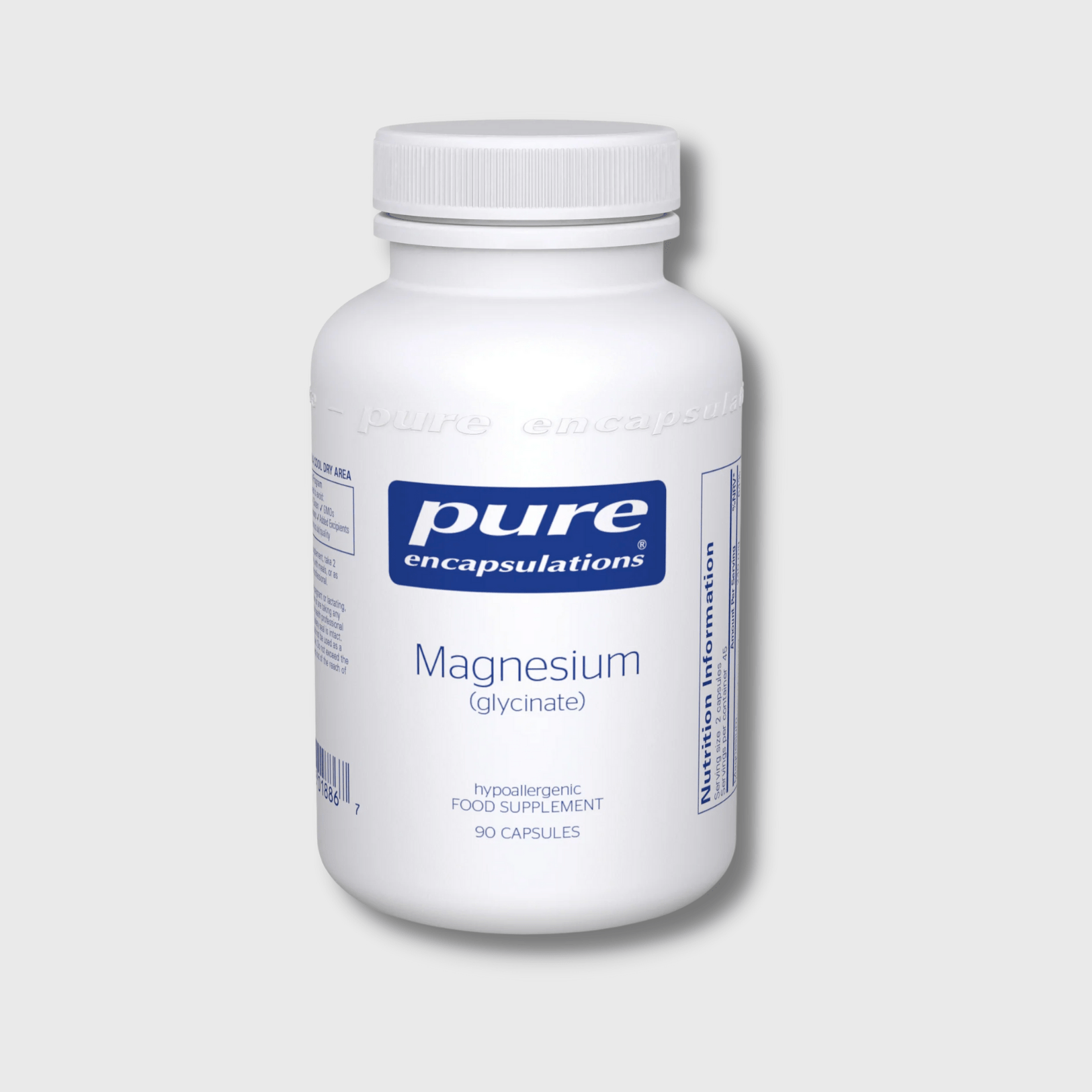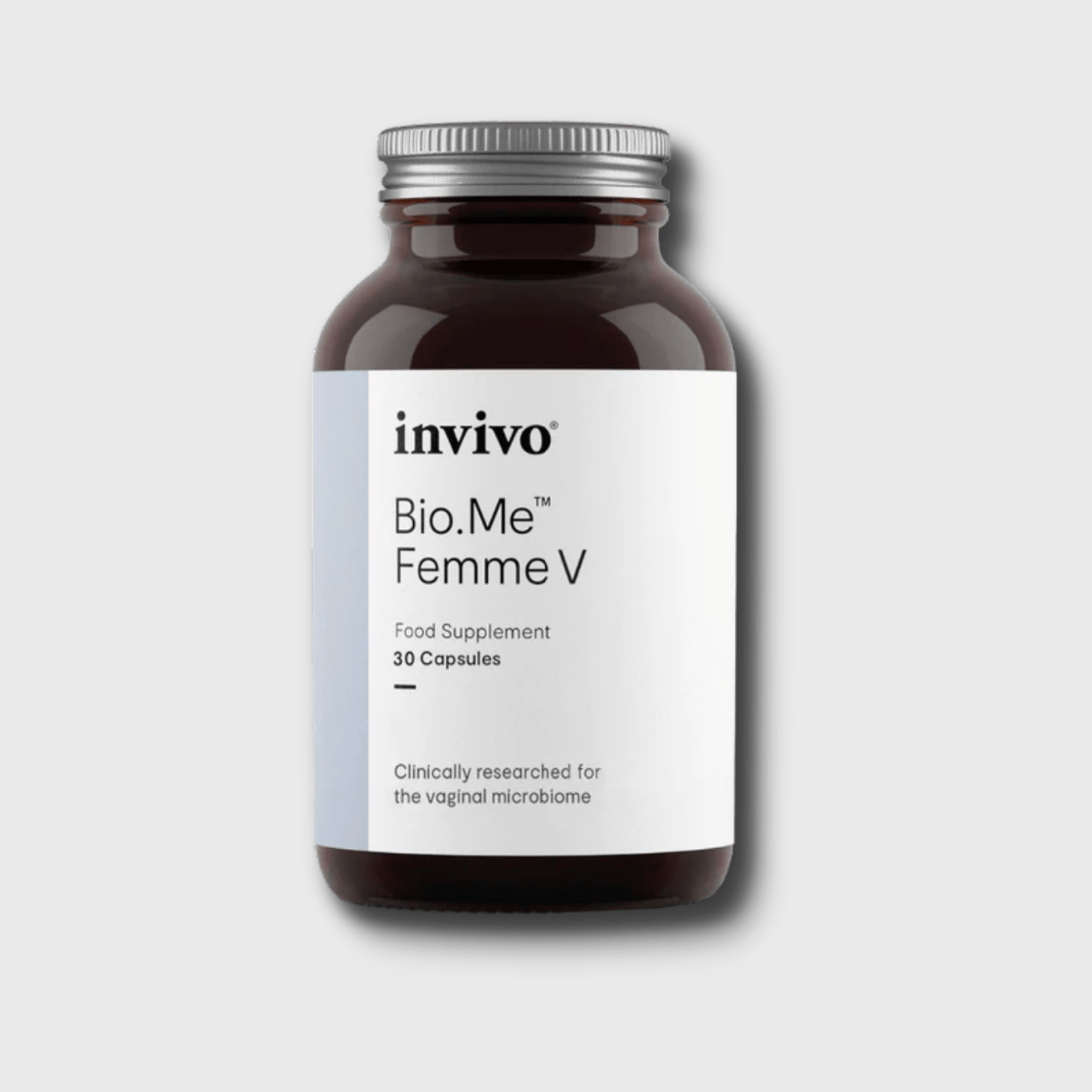
All About Female Hormone Imbalances: Key signs and natural treatment options
What are hormonal imbalances?
Hormonal health plays a crucial role in a woman's overall wellbeing. There are many health issues associated or made worse by fluctuating or imbalanced hormones. This includes mood changes, weight changes, acne, changes in menstruation, hair loss, infertility, low sex drive, as well as gut and liver issues.
The endocrine system, responsible for hormone production and regulation, is complex. Any imbalance can have a domino effect on other hormones as well as our overall health. However, the number of factors to consider can make it very difficult to identify the ultimate cause of hormone related problems.
This article offers educational insights into the common hormonal issues women experience from menstruation through to menopause, encouraging proactive health management.
How to recognise changes in menstruation
While some fluctuations in menstruation are normal, it's essential to seek medical advice if you notice changes in discharge, menstruation, abnormal bleeding, bloating, or pain, including pain during and after sex.
- Irregular Periods - On average most women have a cycle of 28 to 30 days but this can vary from between 24 and 38 days. An irregular period is defined as a break in your normal pattern, such as frequency, length, or absent periods. There are many causes, including diet, stress, and overexercising, as well as medical conditions that can happen as women move to menopause.
- Menorrhagia - Menorrhagia is a medical term for heavy periods as well as periods that may last longer than usual. Heavy periods, also known as flooding, is where you must change your sanitary products at least every 2 hours. You may also experience passing clots. During this time, it is common to feel fatigue, which can hinder everyday activities. This can be made worse as you may also feel anxious about bleeding through your clothes or bedding. Additionally, heavy periods can lead to anaemia (iron deficiency) so it’s important to see your GP for advice.
- Dysmenorrhoea - Painful periods, or dysmenorrhoea, should not cause significant discomfort. Mild period pain can often be managed with rest, a hot water bottle, or paracetamol. However, if you have severe pain, especially if accompanied by other symptoms, you should seek advice from your GP to rule out possible medical conditions. Period pain can radiate around the tummy, back, and even down the legs and may come with bloating, mood changes, fatigue, and changes in your stools.
Can hormonal imbalances cause anxiety?
Yes, hormonal imbalances can cause or contribute to anxiety. Hormones play a significant role in regulating mood and emotions, and when they are out of balance, it can lead to emotional and mental health issues like anxiety. Here’s how some key hormones can influence anxiety:
-
Cortisol: Often referred to as the "stress hormone," cortisol is released in response to stress. Chronic stress can lead to elevated cortisol levels, which can cause anxiety and nervousness. If the body is constantly producing too much cortisol due to prolonged stress, it can exacerbate feelings of anxiety.
-
Estrogen and Progesterone: These female hormones fluctuate throughout the menstrual cycle and life stages such as pregnancy and menopause. During these times, women may experience heightened anxiety. For instance, low estrogen levels during menopause or fluctuations in estrogen and progesterone during the menstrual cycle can cause mood swings and anxiety.
-
Thyroid Hormones: Thyroid imbalances, whether it’s hyperthyroidism (overactive thyroid) or hypothyroidism (underactive thyroid), can significantly impact mental health. An overactive thyroid often leads to symptoms like anxiety, restlessness, and panic attacks, while hypothyroidism can contribute to depression and low energy.
-
Testosterone: In both men and women, testosterone plays a role in mood regulation. Low levels of testosterone, particularly in aging men or women post-menopause, can lead to increased irritability, anxiety, and mood swings.
Addressing hormonal imbalances through lifestyle changes, medication, or hormone therapy can help improve anxiety symptoms. If you suspect a hormonal imbalance is affecting your mental health, it's important to consult with a healthcare provider for testing and treatment options.
Can hormone imbalances lead to weight gain?
Fundamentally, any weight gain is caused by eating too much. Anyone looking to address weight gain should first consider their diet, portion size, overall calories intake and level of activity.
However, hormonal imbalances can be a contributing factor to weight gain. Hormones regulate many functions in the body, including metabolism, appetite, and fat storage. When certain hormones become imbalanced, it can disrupt these processes and contribute to weight gain. Here are some hormones commonly associated with weight changes:
-
Insulin: Insulin is responsible for regulating blood sugar levels. When insulin levels are too high (often due to insulin resistance), the body stores more fat, leading to weight gain. This is commonly seen in people with conditions like metabolic syndrome or type 2 diabetes.
-
Cortisol: Chronic stress can lead to elevated levels of cortisol, the "stress hormone," which encourages fat storage, particularly around the abdomen. High cortisol levels can also increase appetite, causing overeating and weight gain.
-
Thyroid Hormones: The thyroid gland produces hormones that regulate metabolism. Hypothyroidism, or an underactive thyroid, can slow down metabolism, leading to weight gain, fatigue, and difficulty losing weight.
-
Estrogen: In women, estrogen imbalances, particularly during menopause, can lead to weight gain. As estrogen levels drop, the body tends to store more fat, especially around the abdomen. High estrogen levels can also cause weight gain, often linked to conditions like polycystic ovary syndrome (PCOS).
-
Testosterone: Low levels of testosterone, especially in men, can lead to increased fat accumulation and reduced muscle mass. This hormone imbalance can also slow metabolism, making it easier to gain weight.
-
Leptin and Ghrelin: These hormones control hunger and satiety. Leptin signals to the brain when you’re full, while ghrelin stimulates hunger. Imbalances in these hormones, often seen in sleep deprivation or stress, can lead to overeating and weight gain.
Addressing hormone imbalances through proper treatment, diet, exercise, and stress management can help regulate weight. If you suspect a hormonal issue is contributing to weight gain, consulting with a healthcare provider for testing and treatment options is recommended.
Can hormone imbalances cause hair loss?
Yes, hormonal imbalances can cause hair loss. Hormones play a crucial role in regulating hair growth cycles, and when they are out of balance, it can disrupt the normal process of hair growth, leading to thinning or excessive shedding. Here are some common hormonal causes of hair loss:
-
Thyroid Hormones: An imbalance in thyroid hormones, particularly hypothyroidism (underactive thyroid) and hyperthyroidism (overactive thyroid), can lead to hair thinning or hair loss. The thyroid regulates many bodily functions, including hair growth, and imbalances can disrupt the normal growth cycle.
-
Androgens (Testosterone): Elevated levels of androgens (male hormones), such as testosterone and dihydrotestosterone (DHT), can lead to androgenetic alopecia or pattern hair loss in both men and women. Women with polycystic ovary syndrome (PCOS) often experience this type of hair loss due to excess androgens.
-
Estrogen and Progesterone: Fluctuations in estrogen and progesterone levels, particularly during menopause, pregnancy, or after giving birth, can cause temporary hair loss. During pregnancy, estrogen levels are high, which can prolong the hair’s growth phase, resulting in thicker hair. After childbirth, when estrogen levels drop, many women experience postpartum hair loss.
-
Cortisol: Chronic stress leads to elevated levels of cortisol, which can disrupt hair growth and lead to telogen effluvium, a condition where stress pushes hair follicles into the resting phase, causing increased shedding.
-
Insulin Resistance: Conditions like PCOS and diabetes, which are linked to insulin resistance, can also contribute to hair loss by disrupting hormone levels.
Treating hormonal imbalances can often help reverse or reduce hair loss. If you are experiencing hair loss and suspect a hormonal cause, it’s important to consult with a healthcare provider for testing and treatment options.
How to navigate Premenstrual Syndrome (PMS)
Changes in your body's hormone levels before your period can cause physical and emotional changes, often known as Premenstrual syndrome (PMS).
Symptoms range from mild to severe mood changes, fatigue, headaches, migraines, and general aches and pains leading up to menstruation. These symptoms typically disappear within a day or two of your period starting. Changes in appetite, including cravings for salt and sugar, are also common.
There are lots of natural support for PMS, including dietary and lifestyle changes, along with supplements like magnesium glycinate, evening primrose oil, and B vitamins.
How to Understand Polycystic Ovarian Syndrome (PCOS)
Polycystic Ovarian Syndrome (PCOS) creates changes in your hormone levels, including oestrogen and androgens. Contrary to its name, PCOS doesn't always mean there are cysts produced but often affects how are ovaries work. It makes us more insulin resistant, so our risk of other conditions including diabetes is higher. Symptoms may include irregular or heavy periods, fertility issues, acne, facial hair, hair loss/thinning hair, mood swings, low sex drive and in some cases weigh gain.
What is Perimenopause and Menopause?
Menopause is often thought of as the time when women start to feel at their worst as hormones decline. However, perimenopause, the period leading up to menopause, is typically when symptoms are most severe due to our hormones fluctuating to their most extreme highs and lows causing more severe symptoms.
This phase can start 10-12 years before menopause, with women experiencing hormonal changes from their late 30s onwards. In the UK the average age for menopause (defined as at least 12-18 months after your last period), is 52 years, though it can range from our mid 40’s into mid 50’s.
What are Symptoms of Perimenopause and Menopause?
Common symptoms include hot flushes, irregular, heavy or painful periods, mood swings, fatigue, low sex drive, anxiety, joint pains, migraines, vaginal dryness, depression, and poor sleep. Women can also experience change in metabolism leading to weight gain and muscle loss. Gut and liver issues are also common, and this also impacts our ability to metabolise or detoxify oestrogen.
What is Hormone Replacement Therapy (HRT)?
Hormone Replacement Therapy (HRT) can help for some, but it's important to identify the specific hormonal imbalances. It could be adrenals, oestrogen dominance due to poor oestrogen metabolism or detoxification, low progesterone or issues with androgens including testosterone. A healthy diet and lifestyle changes are also recommended.
Understanding and managing hormonal health is essential for overall wellbeing. Always consult a healthcare professional for personalised medical advice and support.
All recommendations are intended for informational and educational purposes only and are not a substitute for professional medical advice from your GP.
Share






